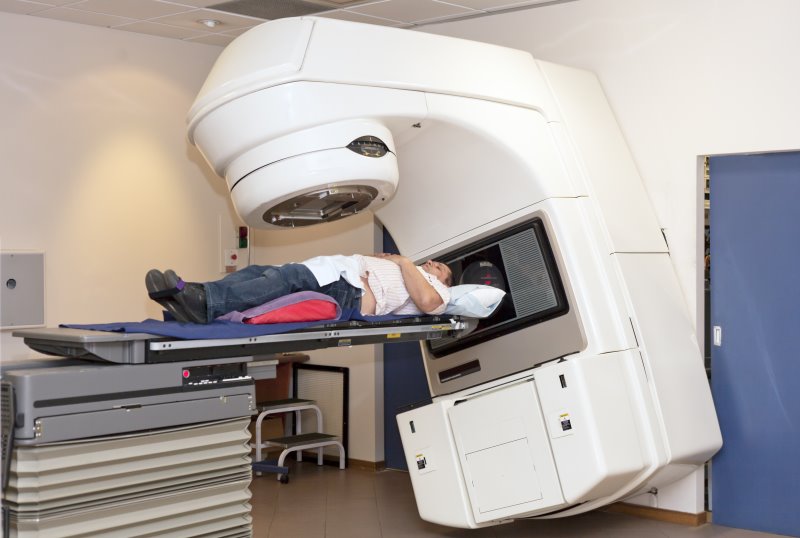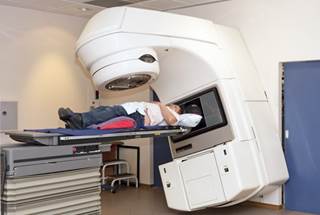Radiation Ups Survival When PCa Metastatic Burden Is Low


The 3-year survival rate was 81% for patients who underwent EBRT plus standard care vs 73% for those who had standard care alone.
Prostate radiation therapy does not improve overall survival in men with newly diagnosed metastatic prostate cancer (PCa), except for those with a low metastatic burden, according to new findings from the STAMPEDE trial.
Compared with patients who received standard care alone (controls), those who received standard of care plus external beam radiation therapy (EBRT) improved failure-free survival by 24% but not overall survival in men with metastatic disease. Among men with a low metastatic burden, however, the overall survival rate was significantly higher at 3 years among those in the EBRT group compared with controls (81% vs 73%). In adjusted analyses, EBRT was associated with a significant 32% decreased risk of death among patients with low metastatic burden, Christopher Parker, MD, of Royal Marsden Hospital in the UK, and colleagues reported in the Lancet.
Radiotherapy was well tolerated, according to the investigators. Only 48 (5%) and 37 (4%) adverse events (Radiation Therapy Oncology Group grade 3–4) were reported during and after radiotherapy, respectively. The occurrence of severe adverse events was similar between the treatment and control arms.
In the phase 3 STAMPEDE trial, 1029 patients (median age 68 year; PSA 97 ng/mL) were randomly assigned to standard care alone and 1032 to EBRT plus standard care at more than 100 hospitals. Metastatic burden was low in 49%, high in 54%, and unknown in 6% of men. As in the CHAARTED trial, low metastatic burden was defined as “not high” (high: 4 or more bone metastases with 1 or more outside the vertebral bodies or pelvis, or visceral metastases). For standard care, patients received androgen deprivation therapy (ADT) with early docetaxel permitted after 2015 (18% of patients). EBRT was administered daily (55 Gy in 20 fractions over 4 weeks) or weekly (36 Gy in 6 fractions over 6 weeks). Optimal radiation dosing and technique still need to be determined.
According to the investigators, STAMPEDE findings agree with results from the HORRAD trial: No overall survival benefit was found for men with metastatic PCa randomly assigned to radiation with ADT. Yet a potential survival advantage was found for patients with fewer than 5 bone metastases.
“Prostate radiotherapy should be a standard treatment option for men with newly diagnosed disease with a low metastatic burden,” Dr Parker and his colleagues concluded.
In principle, radiation therapy should also improve survival for men with non-metastatic pelvic node-positive PCa, they added.
Reference
Parker CC, James ND, Brawley CD, et al. Radiotherapy to the primary tumour for newly diagnosed, metastatic prostate cancer (STAMPEDE): a randomized controlled phase 3 trial. Lancet. DOI:10.1016/S0140-6736(18)32486-3
https://ift.tt/2ACO4Ot


Comments
Post a Comment